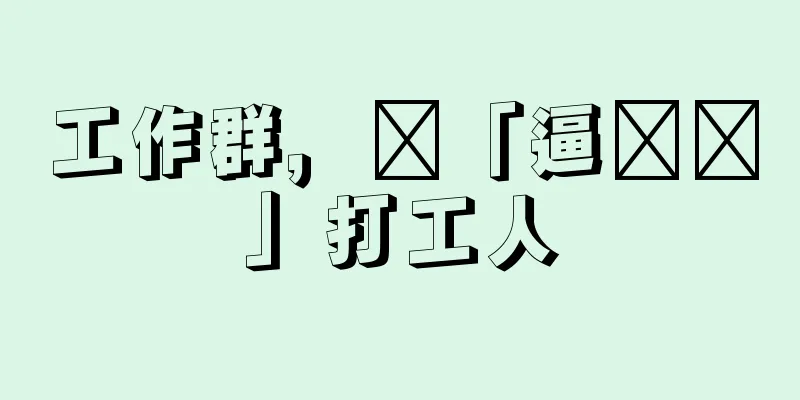工作群,「逼疯」打工人

Since the advent of WeChat work groups, workers' work and life can no longer be separated. And the workplace etiquette in work groups has driven many workers crazy. Recently, there was a trending search titled "Resigned because of replying 'OK' in the group". The cause of the incident was that a netizen was busy with work and saw the leader sent a notice, and immediately replied "OK". The leader accused him of "this reply is very low in emotional intelligence, usually elders or leaders would reply like this". The netizen thought this accusation was unreasonable, and combined with some previous conflicts, he finally decided to resign. Similar things are not uncommon in the workplace. "Dingjiao" talked to 5 workers about the "embarrassing things" they experienced in the work group. Through their own experience they know that subordinates’ replies to their leaders’ notifications with “ok” or “good” are impolite and disrespectful to their leaders; subordinates are best not to use words like “thank you for your hard work”, but leaders should say them to their subordinates; “oh” and “hehe” are not suitable for work groups, and mindless copy-and-paste replies represent a perfunctory attitude towards work, and directly questioning leaders in a work group is a big taboo in the workplace. Although they do not completely agree with these "unwritten rules", they all believe that when to reply and how to word in a work group is a science. If you are not careful, it may become a reason for criticism, exclusion or even dismissal. What kind of reply is more in line with workplace etiquette? Workers summarize: The most basic ones are to reply "OK", "Understood", and "Received". In order to avoid mistakes, when replying to messages in the work group, it is best to wait and see before following the crowd to reply. A better reply is to indicate receipt and add an execution plan and the time point when the task is completed. Whether you are willing or not, workplace etiquette is a lesson that workers need to learn in the workplace. The following story may be a reference for more people: 1. I received a notification three times in a row, and I failed the probation period because of my "perfunctory work attitude"Zheng Le|28 years old, Internet industry, Beijing In my first job, I failed the probation period because I gave an inappropriate response in the work group. I had just entered the workplace after graduating from school, and I deeply disliked the frequent notifications in the work group. The leaders didn't ask everyone to reply, but there were always colleagues who took the lead in replying "received", followed by a bunch of copied and pasted "received". The most exaggerated thing is that the boss always likes to post his work experience or photos of meeting clients to the group on weekends. Someone will take the lead in replying "Thank you for your hard work", followed by a series of copy-and-pasted "Thank you for your hard work", which really ruins the mood of the weekend. In fact, the first company I joined was not very large. I didn't expect that the trend of "following the trend" was very popular. I couldn't stand out and not reply, so I was forced to follow the trend every time. Although it didn't directly affect my work, it made me feel like a puppet and I was very uncomfortable. I began to comfort myself, "It's just copy and paste, it only takes a second." Slowly, I stopped wasting time and almost completely adapted to this mechanical, mindless reply. Unexpectedly, a bug appeared. Once, my boss sent a new task from a client in the group chat and called a meeting. It was lunch time and I was in a hurry to go out to meet the client. I was afraid that I would forget about it later, so I didn’t read the message carefully and replied “received” reflexively. When I went downstairs and took the online taxi, I saw my colleagues replying "received" in the group chat, so I followed suit. Because I was afraid of motion sickness, after replying, I put my phone away and closed my eyes for a while. When I arrived at the coffee shop where I had an appointment with a client, the client called to say he would be late. I took out my computer to work. WeChat was connected to the computer. As soon as I connected to the Internet, WeChat messages popped up like crazy. I saw that my boss had sent a message and my colleagues replied "received". I thought I missed it, so I quickly replied "received". After finishing talking with a client, I looked at my phone again and saw a private message from a colleague telling me about it. I replied “received” three times. At that time, I was about to be promoted to a regular employee during my probation period, and my direct supervisor told me that I could not stay. I asked her why, and she said that she recognized my work ability, but it was difficult to change the boss 's perspective on employees. We both thought that my "received" three times in a row was just a "careless" mistake, but the boss interpreted it as "too perfunctory at work." This setback at work also made me start to think that in order to survive in the workplace, I have to be extremely attentive even when replying to group messages. I am still working in an Internet company, but the atmosphere is much more relaxed. I generally have three ways of replying in work groups: "Received", "OK", and "OK", with obedience ranging from low to high. When I reply “got it”, it means I understand, but I may not necessarily do it; when I reply “OK”, it means that since you are my superior, I choose to obey and will do it, but I will not be very proactive as to how far to push it; when I reply “OK”, it means that I agree to do it and will do it. Fortunately, my current company has not required me to reply with "Oh". If it happens one day, it means that I will be looking for my next job. Of course, in the workplace, there is no one-size-fits-all way to respond, because each company and each leader has different preferences. My suggestion is that when you first arrive at a company, especially when responding to group messages, don't respond rashly. Observe and imitate first. You won't go wrong if you follow the crowd. If the leader is chatting privately, you cannot just reply "received" or "OK". You must grasp this link to show your work plan and work attitude. If you handle it well, the leader will think you are reliable. My experience is that when replying, you must not only indicate that you have received it, but also briefly explain the execution plan and give a completion time. If this work is difficult to complete, you should also disclose it at this time, but you must also show that you are very positive about solving problems. This is also a good preparation for the need for leadership assistance in future work. 2. I was criticized for being impolite for replying "OK", and my boss told me to pay more attention to "workplace etiquette"Xiaoyu | Post-00 e-commerce industry in Guangdong At that time, the leader was assigning tasks and sent a folder. I immediately replied "OK". Then she sent me a text message, "You can't use OK to reply to the leader. You should reply 'received' or 'OK'. It will be better this way." She also explained to me that "OK" usually means knowing or approving, and it would be impolite to reply to the leader in this way. She reminded me that maybe I just graduated and was not very clear about these work etiquettes, but I should pay attention to these small details in the future, especially in some companies with the habit of "calling the boss". Since I had just entered the workplace, this was the first time I encountered this kind of problem. I was confused at first, wondering why replying "OK" meant having no emotional intelligence, but I immediately sent two face-covering emojis and replied to my boss "OK, OK". After that, I never used "OK" again when communicating with my boss. My boss has an old-fashioned style and takes workplace etiquette very seriously, and many of her practices are difficult for me to understand. Once, after finishing work, I left work and she told me to let her know next time I leave work. She also asked the senior employees if the work assigned to me was not full, otherwise why did I leave work so early (without overtime). Of course, she was not targeting me. I have a colleague who leaves work on time every day, and she asked him why he always leaves on time. Our company is not small, with more than 200 employees, most of whom are young people, so the atmosphere among colleagues is not bad. In the work group, the interactive atmosphere between leaders and subordinates is also good, so I feel that workplace etiquette in this regard is more due to the personal habits of a certain leader, rather than the overall culture of the company. Later, the company adjusted its business and I was assigned to work under another leader. The new leader didn’t care about these workplace rhetoric. She didn’t care about my replies like “OK”, “Received”, “1”, etc. However, this leader was the type who “liked to criticize”. For example, she would tell me every day that I did not do well here or there, but my work won awards and other leaders asked other colleagues to learn from me, but I just couldn’t get her praise. Instead, I was criticized for “being able to do better.” As a result, for a period of time, I always felt that my work ability was very poor and I was so anxious that I suffered from insomnia. Later, after communicating with some friends, I slowly came out of it. I reflected that it might be because I have a soft personality. When encountering such things, many colleagues would resist, but I couldn’t do that, so my leaders pointed out problems in all aspects. Now I have let it go and found a working method that suits me better. For example, I reply to all kinds of messages in the work group if I want to, and ignore them if I don’t want to, so I don’t talk in the work group unless it is necessary; when I encounter tasks issued by the leader, I directly reply to receive them; when the leader assigns additional tasks, I first check whether I can do it, and if I can do it, I will take it, and if I can’t, I will directly say that I can’t do it, but the latter situation is not common at present. I hope that the work group is an efficient and free space, where employees are free to respond however they want, and that replying with words like “OK, 1, received, okay” will yield the same result, indicating that everyone knows the task, and there is no need to waste time on this during work. 3. Tell your boss you’ve worked hard and you’ll be taught a lessonFang Ming | 28 years old, Beijing marketing company A few years ago, I changed jobs to a certain company and at first I was very uncomfortable with the atmosphere there. Because I am the only newcomer in the department, and my leader is a very cautious person, he is more demanding of me and even repeatedly reminds me how to reply in the work group. The most memorable time was when I said "thank you for your hard work" in a work meeting group. My boss immediately called me to the office and told me that "thank you for your hard work" was not something I could say, and that it was something that should be said from the top to the bottom, not from the bottom to the top. Actually, after careful consideration, it made sense, but the work style of my previous workplace was very open, and I didn't think of this at all. Other things similar to "being taught a lesson" include: when a leader speaks in the group, I have to keep the same sentence structure as the first person who replies, forming a "like and reply building"; when a leader in the group delegates a task, I cannot simply reply with "OK", but must strictly reply in the format of "received + execution of work content + delivery time". Another time, my boss and I had an appointment for a meeting at 10 a.m. I arrived at 9:56, but he arrived at 9:50. As soon as I walked in, he immediately criticized me, saying that I couldn't be later than him and asked him to wait for me. Even if I wasn't late, he still thought it was disrespectful to him. If how to reply to work messages and how to treat people can be learned through practice, then office relationships are more difficult to manage. I later discovered that most people in the department have their own backgrounds, and there is competition between leaders. I not only have to be careful in what I say, but also in what I do. This depressing atmosphere permeates every minute and every second of the work process, and I am restricted in everything I do, so I chose to leave. Later, I had my own small team of several people, doing some marketing and advertising work. With my previous experience, I would not ask for any exaggerated responses. For me, the work group has only one purpose - I convey the requirements, the other party receives them clearly and gets the job done. Because I have never felt that I am a superior, I am not anyone's boss, I have an equal relationship with everyone, so I don't have such expectations. Later, I also encountered a new intern who replied 1 in the group to indicate that he had received the message. I feel that young people nowadays are more resistant to group chats, and they don’t care much about the so-called "sense of superiority and inferiority." From my observation, growth can essentially cover up all problems. When the company's performance is good, the boss doesn't really care about these things. But when growth slows down or stagnates, problems begin to be exposed, and enforcing discipline becomes an outlet for the boss to "lose his temper". I have often heard such stories in the past two years. Setting rules for work groups is a manifestation of power and a kind of order that Confucian civilization emphasizes. For me, the more efficient way in the workplace now is result-oriented. I care more about the quality of their delivered products, or whether they really get what I mean. I don’t require the atmosphere of the work group to be active. As long as everyone is responsible for themselves, the team will not be too bad. 4. I was scolded for replying "OK" in the work group and not standing up when my boss entered the officeLi Qing | 33-year-old financial practitioner from Shanxi When I first started working, I didn’t realize that I needed to think carefully before speaking in a work group, and that I had to show respect and politeness to my boss. I just replied to messages by saying whatever came to my mind. One time, our big boss notified me about work in the work group, and I replied with “OK”. After seeing this, my direct supervisor contacted me privately and said, “You replied with ‘OK’ as if you are the leader, which will make the leader uncomfortable. Please reply next time to indicate that you have received or understood.” Our leader's requirements for workplace etiquette extend from the work group to the office. I was scolded once because the company was bidding and I was preparing the bid materials, which was very urgent. But the leader happened to come to our office, and I was busy writing materials at my workstation and did not actively respond to the leader. Soon the leader started to scold me, saying that I didn't respect him because I didn't stand up when he came in, and didn't stop what I was doing to listen to him. What he meant was that we should be like in TV dramas, standing up when the leader comes in, and not doing anything else when the leader is talking, but listening carefully. In my opinion, we see each other every day, and we are busy with work, so how can we have time for these flashy things? I had an argument with him, and I had already decided not to work in this company. Later, when I resigned, I had already submitted a written report in advance, but this leader refused to approve it and said that I could not leave without approval. I had another argument with him and went straight to the company's top leader to sign. He was so angry that I had just completed the resignation procedures on the morning of my resignation, and he kicked me out of the company's work group at noon. Later, my colleagues told me privately that this leader was very vindictive and scolded me many times after I left. Nowadays, we basically cannot completely separate work and life. I think the ideal situation is to separate work groups from life social tools, and unless there are special circumstances, work matters should be communicated during working hours. In terms of work group conversation, although I do not agree with the overly bureaucratic and hierarchical workplace etiquette, I have summarized some precautions after working for many years. For example, you should always pay attention to your performance in the work group. You should be polite and respectful, but not too humble. After I was criticized, I tried not to be the first to reply in the work group. I usually waited for everyone to reply, and then I followed suit. When replying to messages in the work group, the words used are generally "OK", "Got it", "Understood", "Okay". Moreover, in the work group, many things are not convenient to be too explicit. I usually give a simple reply first, then chat privately or call to explain. If you have any questions, you can communicate privately, and don't question the leader in the group. Also, try not to send messages one sentence at a time in the work group. It is best to express the needs concisely and completely in one paragraph. Don't use words such as "OK", "Haha", "Oh", "Hmm", etc., which may make people feel a little cold or unenthusiastic. 5. After the "reorganization of the workplace" in the work group, the boss did not allow me to become a regular employeeXiaobai | 23 years old, Internet industry in Jiangxi Two months ago, I joined a small company. My colleagues were all nice, but the two leaders were always causing trouble. One day, the HR director suddenly announced in the work group: starting from the next day, all employees must take the stairs to and from work. It was found that for one elevator ride, they needed to do 50 push-ups, two times 100, and so on. Our company is on the fourth floor, and the explanation given in the group was: "To gather energy and inspire everyone's fighting spirit." The HR director also reminded us not to be late because of climbing stairs, unless there are special circumstances. It was already evening, and I started to criticize in the group, because I was afraid that if I didn't say it in time, I would really have to climb stairs to go to work tomorrow. I sent a 180-word long message in the group, criticizing this rule. I think elevators were invented for convenience, and there is no need to conduct such compliance tests. At the same time, I stated that I would insist on taking the elevator to and from work. This rule is very strange. After arguing with them, I thought, at worst they will fire me, and then I will find a company that is more suitable for me. After I sent the message, some colleagues expressed their support in the group chat, and everyone manually "+1"ed to express that they didn't want to climb the stairs. At about 10 o'clock in the evening, the HR director tagged everyone and said that the one-month climbing plan would proceed as normal tomorrow. The HR director was just following the leader's instructions. The next day, I and several colleagues who didn't want to climb the ladder went to the operations director to express our attitude. The two sides had a tug-of-war, and the operations director threatened to transfer us if we didn't climb the ladder. I just said, "I will not voluntarily resign, and I will not voluntarily transfer." Because transfer requires the consent of both parties, which is a legal requirement. This incident made the operations director remember me, and he later became the general manager of the company, nominally the second in command. He used his connections to find someone to replace me, but this person's work ability was not up to standard, so he failed to replace me and left. My direct supervisor was quite protective of me. He also expressed his opposition in the group during the elevator incident, but he resigned within two days. My probation period was two months, and I stayed there for more than a month. One day, the company's top leader was smoking in the office, and the smell of cigarettes was very strong. I was already very busy at work, and the flu was serious at that time. I was not feeling well, so I ran over and closed the door of the top leader's office. The big boss was very angry and talked to me, saying that it was impolite for me to close the door without saying anything. I said that it was impolite to smoke without closing the door. All I could do was to say “I closed the door because the smell of smoke is too strong” next time when I closed the door. Perhaps these two leaders had never seen an employee like me before. I was a thorn in their eyes. They firmly disagreed with my conversion and wanted to fire me. In the end, they fired me on the grounds that I "failed to meet the company's employment requirements." The company is not planning to compensate me, and I did not sign any assessment documents when I joined the company. In my opinion, this is illegal dismissal. I am now applying for mediation. If mediation fails, I will go to arbitration to get back the compensation that belongs to me. I was born in the 2000s. This workplace cleanup is really a hassle for honest people. Maybe for many people, a job is really hard to come by. When encountering strange company regulations, I can't expect everyone to be like me, but I will definitely fight for my rights. * At the request of the interviewees, Zheng Le, Xiaoyu, Fang Ming, Li Qing and Xiaobai are pseudonyms in this article. Author: Xiangyuan Xingxing Bruce Hanmo Wen Gu; Editor: Hanmo Source: Dingjiaoone (ID: dingjiaoone), deeply influencing innovation. |
<<: Short dramas go abroad, sinking without borders
>>: Paying for short dramas: an "asymmetric war" between TikTok, Kuaishou and mini programs
Recommend
What are Amazon's overseas sites? How many overseas sites are open to Chinese sellers?
Amazon, as a giant in the global e-commerce field,...
How to solve the problem of Amazon's store closure? What are the methods?
Once a related situation occurs on Amazon, if ever...
How often does Amazon update its best sellers? Why does the organic ranking drop?
Merchants who open stores on Amazon will pay atten...
Millions of paying users, performance rising against the trend, in-depth analysis of New Oriental membership operations
I believe everyone still remembers the money-burni...
How to change the address of Amazon orders? What are the steps?
When opening a store on the Amazon platform, each ...
How is the shipping fee calculated on Shopee Taiwan? How does Shopee open a logistics channel?
Shopee, like AliExpress, is a cross-border e-comme...
How can I transfer money from Wanlihui to my personal account? How much is the handling fee of Wanlihui?
Many people are concerned about how to transfer Wa...
Unveiling the secrets of leveraging marketing: value benefits, six common methods, and the "three degrees" that need to be paid attention to
In the brand communication strategy, leverage mark...
The same model of "Crazy" is selling like hot cakes, Taobao wins big
In the Internet age, hot topics always come one af...
On Double 11, Alibaba and JD.com sprinted ahead of schedule, while TikTok and Kuaishou were hot on their heels
This article introduces the current situation and ...
199 yuan/year, Oriental Select Member Store?
Today, Dongfangxuan officially launched a paid mem...
6 popular article templates on Xiaohongshu|Just follow them [Industry templates V3.0]
Industry templates are the fastest way to create a...
A brief discussion on “retention” of user behavior analysis
When doing user behavior analysis, retention is an...
Top 10 types of Tik Tok bloggers
This article mainly shares the preparations that n...
Make Tik Tok and create a persona that can be monetized!
Now that the Internet industry is flourishing, how...









